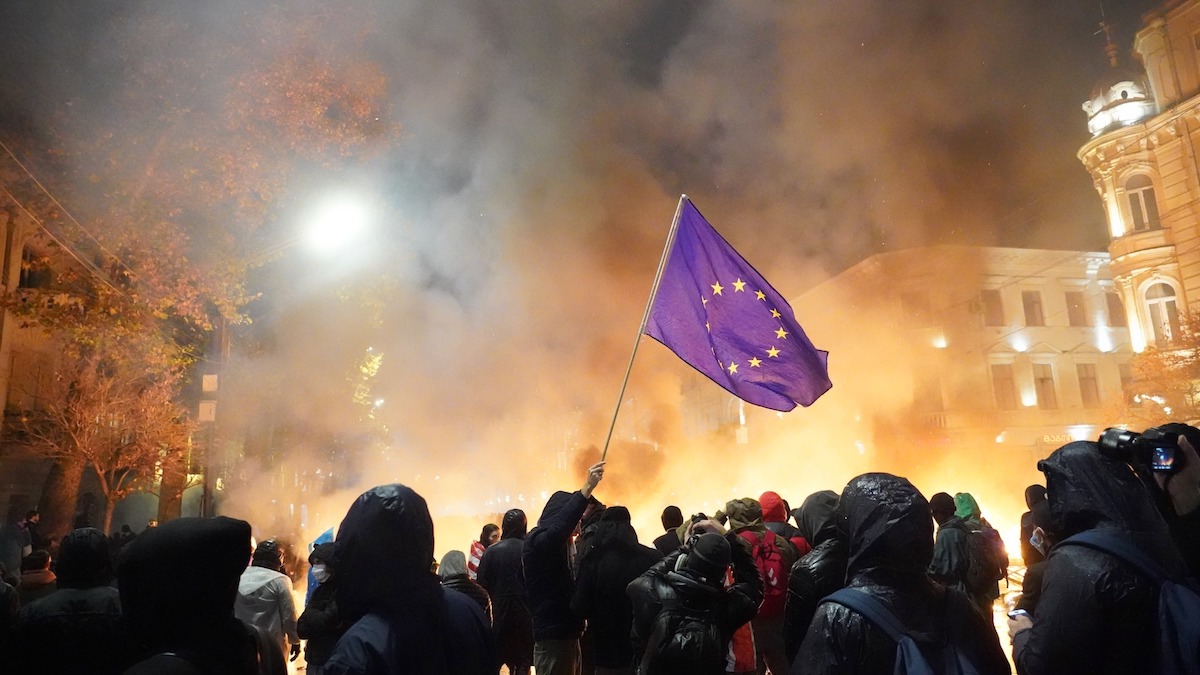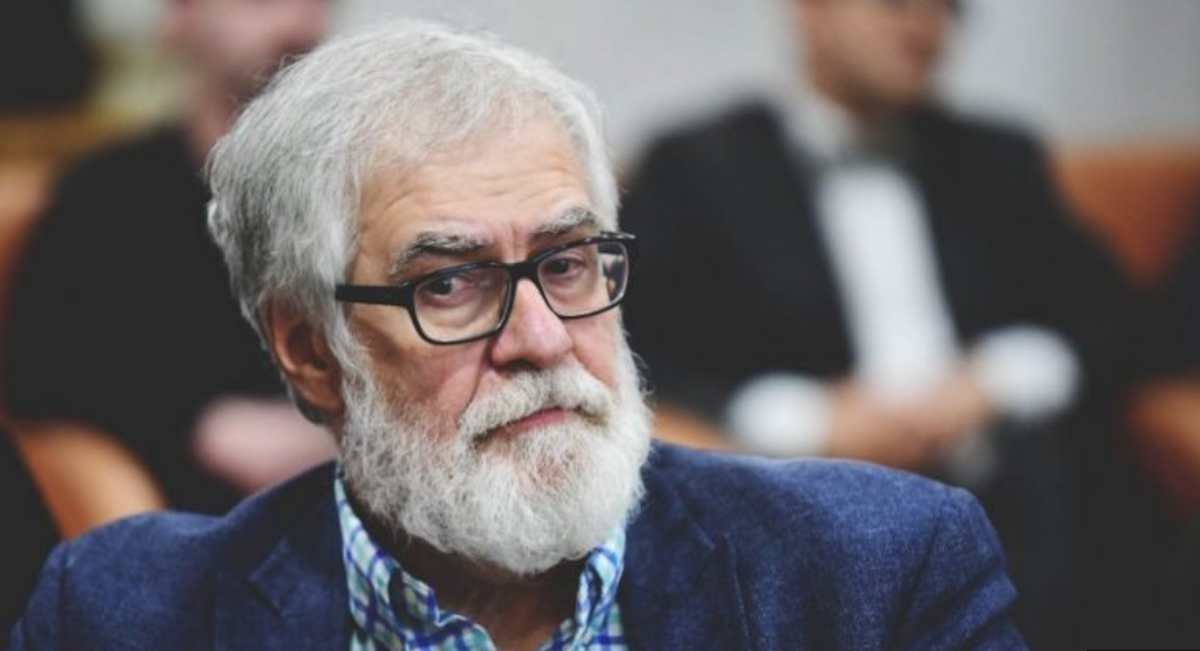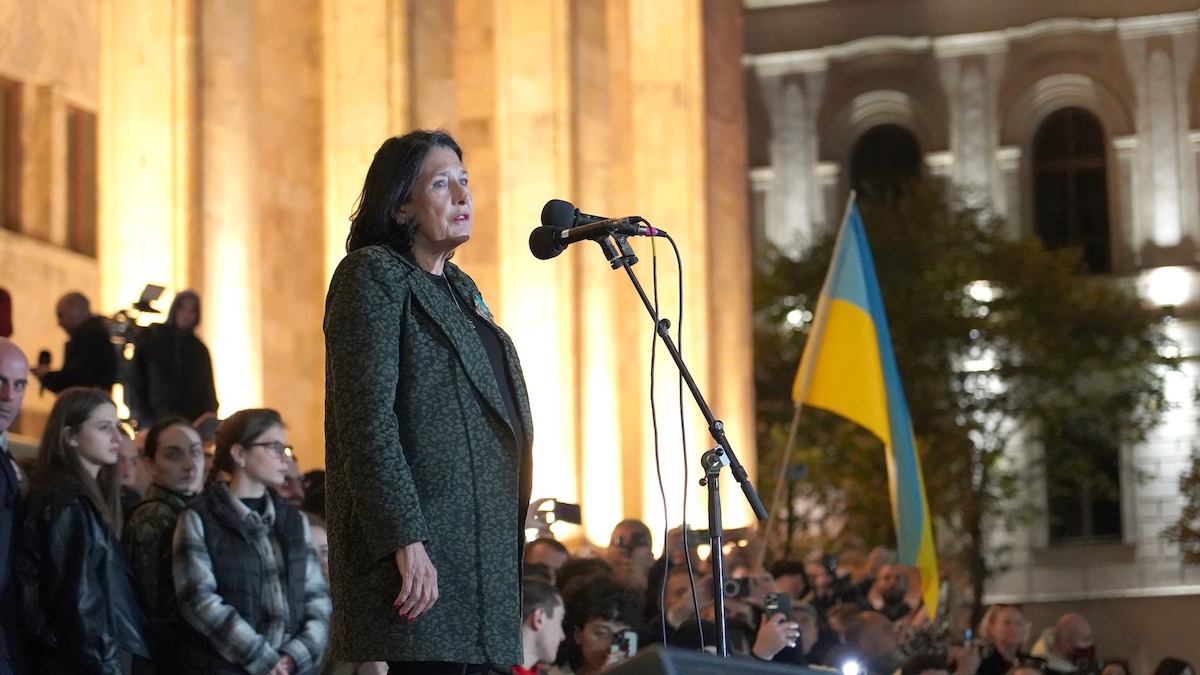
What does the Georgian opposition expect from the EU?
Four opposition groups in Georgia, which gained seats in the October 26 parliamentary elections but rejected the results as fraudulent and refused their mandates, issued an appeal on December 15 to EU High Representative Kaja Kallas and foreign ministers of EU member states.
The opposition leaders called for urgent measures to support the Georgian people in their fight for European values.
The statement was signed by Nika Melia of the “Coalition for Change,” Tina Bokuchava of the “Unity – National Movement” bloc, Mamuka Khazaradze of the “Strong Georgia” bloc, and Zaza Tavadze of the “Gakharia – For Georgia” party.
Key points of the appeal
● “Following the rigged parliamentary elections in October 2024, Bidzina Ivanishvili’s self-proclaimed regime suspended EU accession talks until 2028. This has sparked peaceful protests, which have been met with state-organized terror.
The regime’s decision to halt the EU integration process is a shocking betrayal, even for those who voted for the Georgian Dream party.
As of December 9, amid ongoing protests in Tbilisi and other cities, over 500 people aged 14 to 60 have been arrested during street raids, home searches, and office break-ins.
● Over 300 people, including 73 journalists, have been subjected to violence by government-controlled special forces and street gangs. Victims report torture, inhumane treatment, and systematic human rights violations.
● Even Levan Ioseliani, the Public Defender appointed by Georgian Dream, acknowledged that ‘physical violence has been excessive.’ Despite available evidence, no investigations have been conducted, and perpetrators remain at large. Special forces operate without insignia, and street gang members conceal their identities.”
● Political repression continues. On December 5, a gang attacked opposition leaders during a rally in central Tbilisi, an act organized by the authorities. Police were present but did not intervene.
Opposition leaders Nika Gvaramia (“Coalition for Change”) and Aleko Elisashvili (“Strong Georgia”) were arrested. Elisashvili sustained injuries and now faces criminal charges.
Several party offices were raided, and party members were attacked. The judiciary has been used as a tool to suppress opposition figures and demonstrators.
● The regime’s election of Mikheil Kavelashvili as Georgia’s sixth president on December 14 has further escalated an already difficult situation. Kavelashvili was one of the initiators of the controversial “foreign agents” law and is known for his active anti-Western propaganda.
He was elected by a self-proclaimed and illegitimate parliament created by Ivanishvili, leaving Kavelashvili without independence or legitimacy.
● We, the Georgian political parties and coalitions, together with civil society organizations and protesters, unanimously declare that the only solution to the current crisis is holding new elections under an improved electoral system, with a politically balanced election administration and neutral state institutions.
State bodies involved in electoral violations, such as the State Security Service, the Ministry of Internal Affairs, the Special Investigative Service, and the Personal Data Protection Service, must be freed from political influence.
In this regard, we respectfully urge you to take the following urgent actions to support the people of Georgia and protect European values:
● We demand the immediate and unconditional release of all detained politicians, activists, and peaceful demonstrators.
● We call for targeted sanctions against individuals responsible for actions undermining democracy, including Bidzina Ivanishvili and his relatives, who are implicated in political repression.
● We demand that the visa-free regime with the European Union be suspended for officials connected to the illegitimate government of the “Georgian Dream.”
● We insist that the self-proclaimed regime of Bidzina Ivanishvili be declared illegitimate in all relevant European Union statements.
● We call for strong public condemnation of violent actions against peaceful protesters, journalists, and activists, as well as persistent attempts by the self-proclaimed regime of Bidzina Ivanishvili to undermine democratic institutions.
● Recent diplomatic engagement with the current Georgian administration has been used by pro-government media as a sign of international recognition. To reduce the impact of such narratives, the most effective measure is to halt all contacts with representatives of the current regime until they agree to hold new, free, and fair elections.
● The Georgian people are bravely resisting Russia-supported authoritarianism and fighting for their democratic European future. Your support is crucial to their success. Your clear voice, combined with decisive action, will play a vital role in de-escalating the tense situation in Georgia and restoring constitutional order in the country.
European Commission’s High Representative for Foreign Affairs and Security Policy, Kaja Kallas, and European Commissioner for Enlargement, Marta Kos, stated on December 1 that the path toward European Union accession is in the hands of Georgia’s leadership.
Kallas and Kos expressed concerns over Georgian Prime Minister Irakli Kobakhidze’s announcement that negotiations for EU accession would be suspended and EU financial support would be refused until 2028.
Michael Roth, Chairman of the German Parliament’s Committee on Foreign Affairs, said in an interview with Handelsblatt that “if Germany, France, and Poland agree on a united, tougher stance against the Georgian government, then Orbán will not be able to block anything.”
However, Roth also pointed out that “the EU lacks both a strategy and a plan, while Hungary is being used as a pretext to obscure this.” “The EU must recognize: empty gestures of solidarity alone are not enough,” he emphasized.
Roth further commented on the recent election of the new Georgian president, Mikheil Kavhelashvili, stating: “His ‘election’ is another step toward dismantling all constitutional institutions in Georgia.”
According to Roth, “the ruling party in Georgia is deepening the country’s divisions, planning a coup, and attempting to dismantle liberal democracy.”



